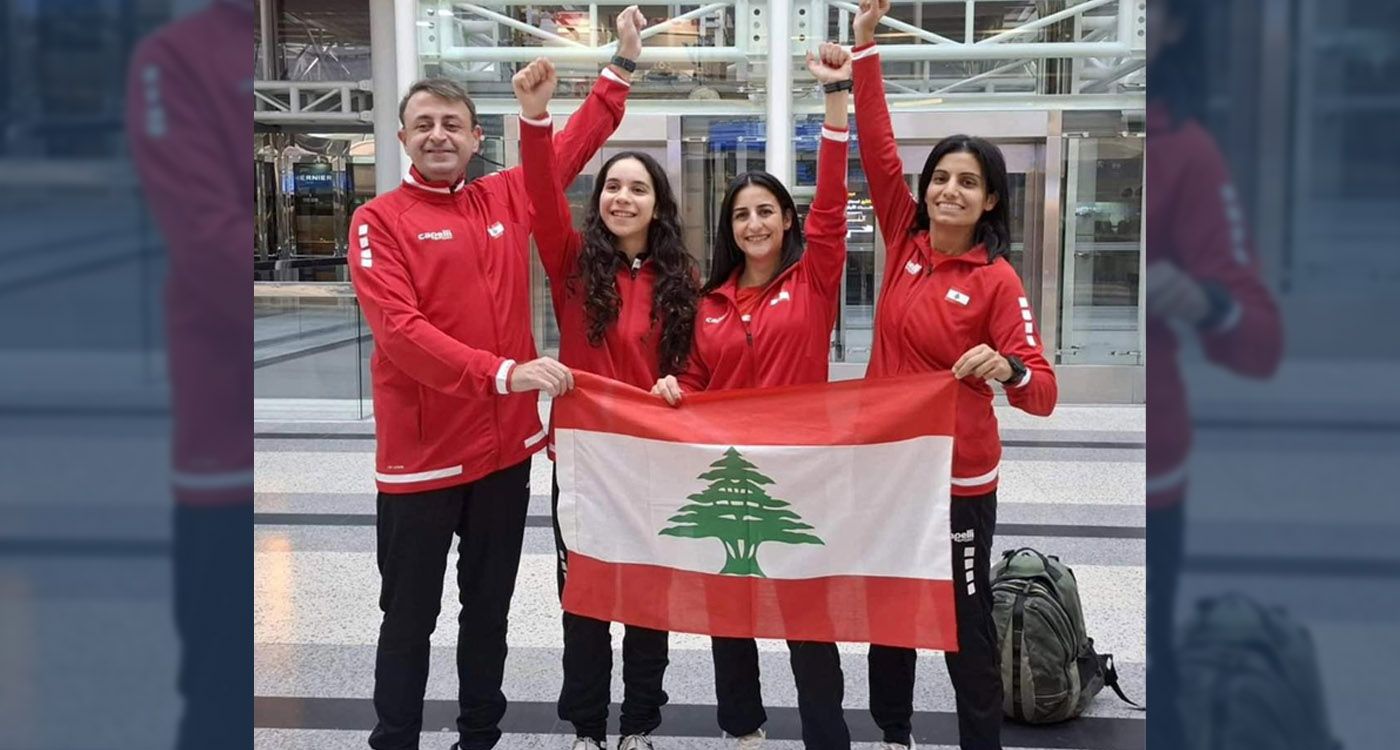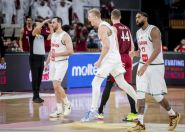
For the first time, the Lebanese flag will fly at the opening of the Deaflympics — the Olympic Games for the deaf — in Tokyo, from November 15 to 26. Four athletes, a century after the birth of these Games, will carry the colors of a country in crisis but rich in courage: a swimmer who lost his home to war, a taekwondo champion, and two sprinters supported by the marathon movement. Beyond the results, this is a story of resilience and the right to sport for all.
The suitcases are modest, the resources limited, but the symbol is immense. From Beirut Airport, a delegation of four deaf athletes has set out for Tokyo to take part in the Deaflympics. For the first time, Lebanon will march with its own flag at the opening ceremony of this global event reserved for deaf or hard-of-hearing athletes.
This historic participation is led by the Lebanese Sports Federation for the Deaf, chaired by Marc Constantin, and made possible despite difficult economic and political conditions, with the support of the Minister of Youth and Sports, Nora Bayrakdarian. On the track, in the pool, and on the mat, there are four of them: Jalal Abbas, Sarah Saliba, Janine Mehanna, and Rana Zeineddine. Four journeys, one phrase in sign language: we too have our place at the Games.
Games That Speak with Hands
The Deaflympics — also known as the Olympic Games for the Deaf — are the world’s oldest multisport competition after the Olympics. Created in Paris in 1924, they now bring together about 2,879 athletes from around 80 countries, competing in 19 disciplines every four years. Only athletes with a hearing loss of at least 55 decibels can participate, without hearing aids or implants during events, to ensure fairness. Recognized by the International Olympic Committee, the Deaflympics movement remains independent of the Paralympic system and upholds its own identity: Games designed by and for deaf athletes.
A Century of History, a First for Lebanon
That Lebanon is joining so late says a lot about the reality of disability and inclusive sport in the country of the Cedars. Deaf people, like many other vulnerable groups, face a double barrier: lack of resources and social invisibility. Specialized schools are few, sports facilities are rarely adapted, and coaches are often not trained in sign language.
Yet in this context, the Lebanese Sports Federation for the Deaf has gradually built a competitive framework. Lebanon’s 2025 participation in Tokyo marks a turning point: for the first time, the country is not limited to isolated initiatives or regional tournaments, but is aligning itself with a global event of Olympic standards.
On the sporting side, the challenge is huge but realistic: it’s not just about bringing home medals, but about measuring up internationally, forging connections, and paving the way. Symbolically, the image of four deaf Lebanese athletes marching behind the red, white, and green flag in a Japanese stadium is already a victory.
Four Lives, One Dream
The most striking face of the delegation is Jalal Abbas. A swimmer, he was a champion long before Tokyo. During the last war in southern Lebanon, he lost his home. Forced to move to Beirut, he could have given up sports — but he chose the opposite. He continued training, knocking on doors, mobilizing his family and neighbors in Nabatiyeh to fund his trip. His participation in the Deaflympics is a challenge thrown at fate as much as at the stopwatch.
Next to him, Sarah Saliba, Lebanon’s taekwondo champion, embodies another side of this adventure — that of an athlete already integrated into the “mainstream” sports system. She participates under the patronage and with the strong support of Habib Zarifeh, the head of the Lebanese Taekwondo Federation, who spares no effort to defend his athletes, hearing or deaf alike. A key figure in Lebanese combat sports, Zarifeh insisted on opening his federation’s doors to deaf athletes and accompanying them onto the world stage. Alongside him, ALBA – University of Balamand and Starkey Hearing Company have joined the circle of supporters. For Sarah, these Deaflympics are a chance to prove that one can be deaf, competitive, and fully legitimate on international tatamis.
The athletics track will be run by two exceptional sprinters: Janine Mehanna, a mother of two, and Rana Zeineddine. Their preparation and travel were supported by the Beirut Marathon Association and the Alwaleed Bin Talal Foundation. Here again, the symbolism is strong: the movement that popularized long-distance running in Lebanon is now ensuring that deaf athletes also have their starting lines.
Going Anyway: The Race for Funding
Behind the postcard image of Tokyo lies a much harsher reality. For this delegation to exist, efforts had to be combined: from the Deaf Sports Federation, the Ministry, private sponsors, and relatives. In a country where the average salary is shrinking and the currency has lost most of its value, paying for airfare, training camps, and certified equipment is often a struggle.
The four athletes have had to juggle work schedules, family duties, and training, often in poorly adapted facilities. Sign language interpreters are not always available, coaches are not all trained to work with deaf athletes, and local competitions are too few to match international standards.
This makes Lebanon’s participation in the Deaflympics the result of fragile logistics but unbreakable willpower. It sends a message to institutions: supporting deaf athletes is not “charity” — it’s a matter of sports justice.
The Games of Silence, Lebanon’s Message
In Tokyo, Jalal, Sarah, Janine, and Rana will compete against athletes from all over the world — amateurs and professionals, men and women united by one rule: in the stadiums, no one wears hearing aids, and starts are given by sight, not sound. Silence becomes a shared language; hands replace loudspeakers; the glance signals the start.
At a time when the country often struggles to listen to its own citizens, it is deaf athletes who remind Lebanon of what truly matters: one does not need to hear to make oneself heard. In Tokyo, at the grand Deaflympics stadium, Lebanon may not make much noise — but for the first time, it will be seen. And that silence will speak volumes.




Comments